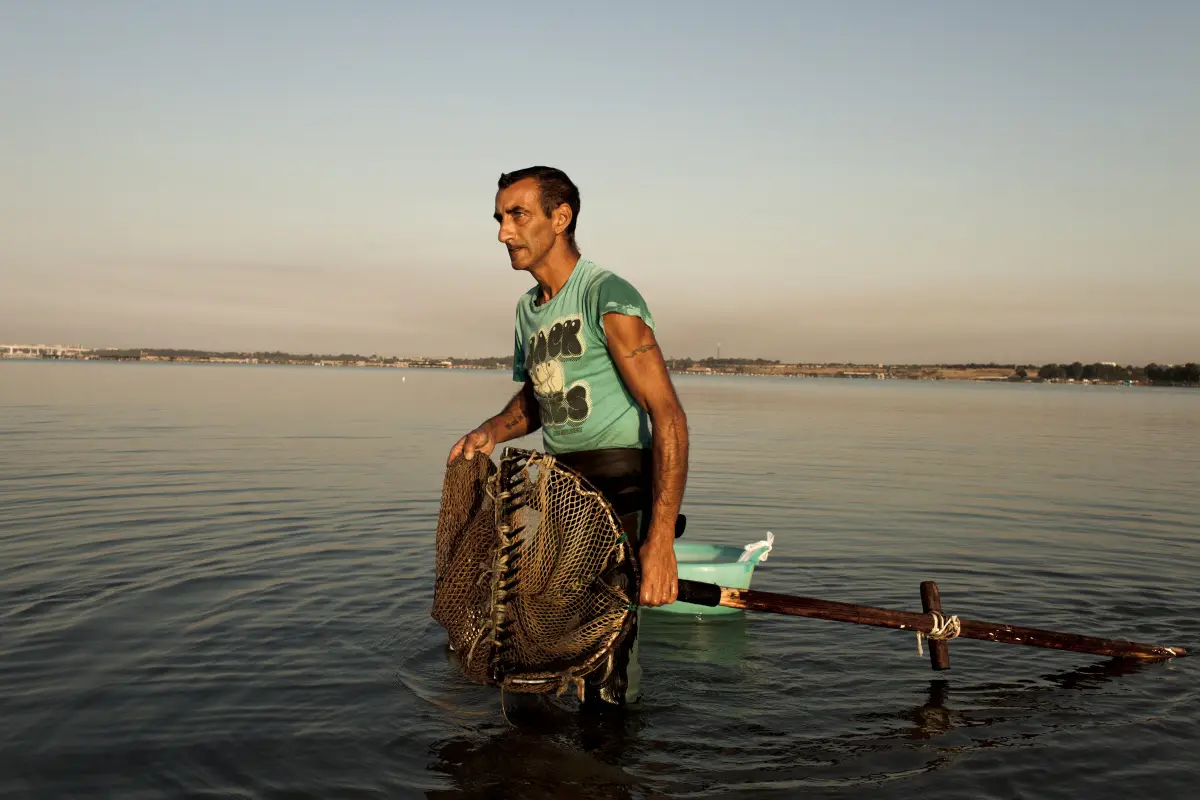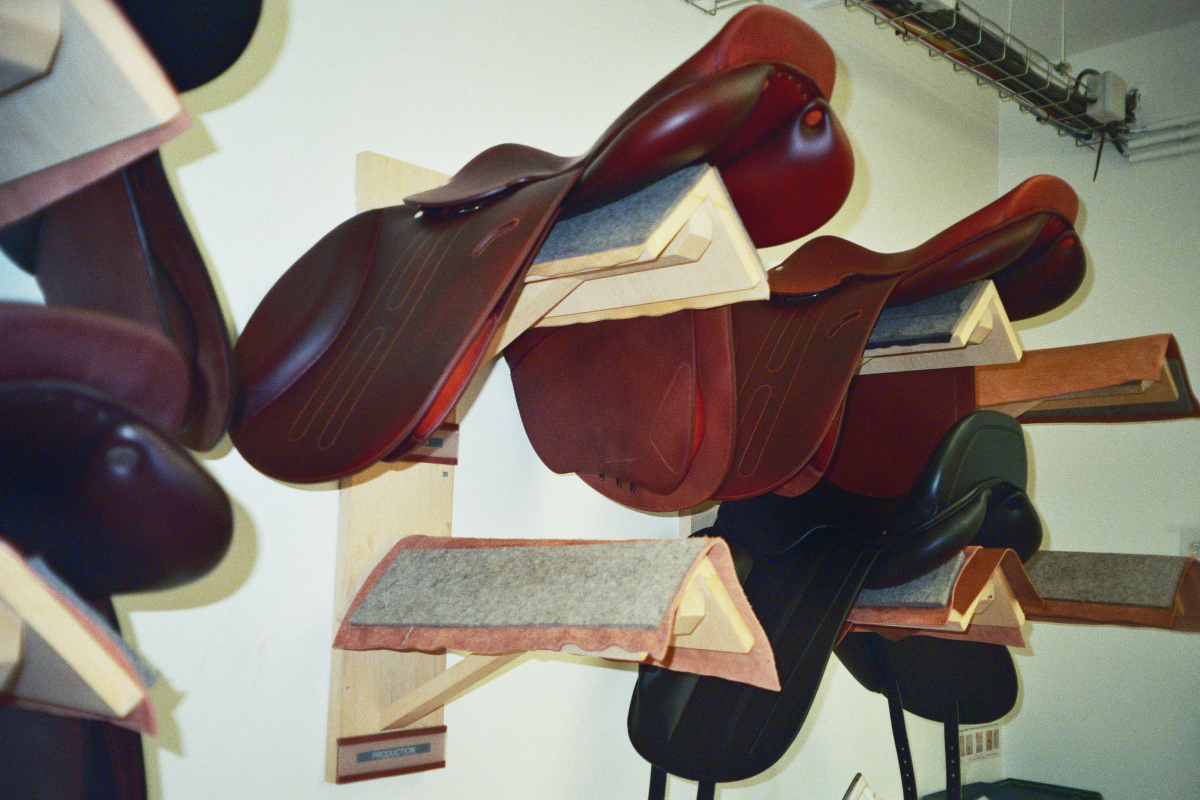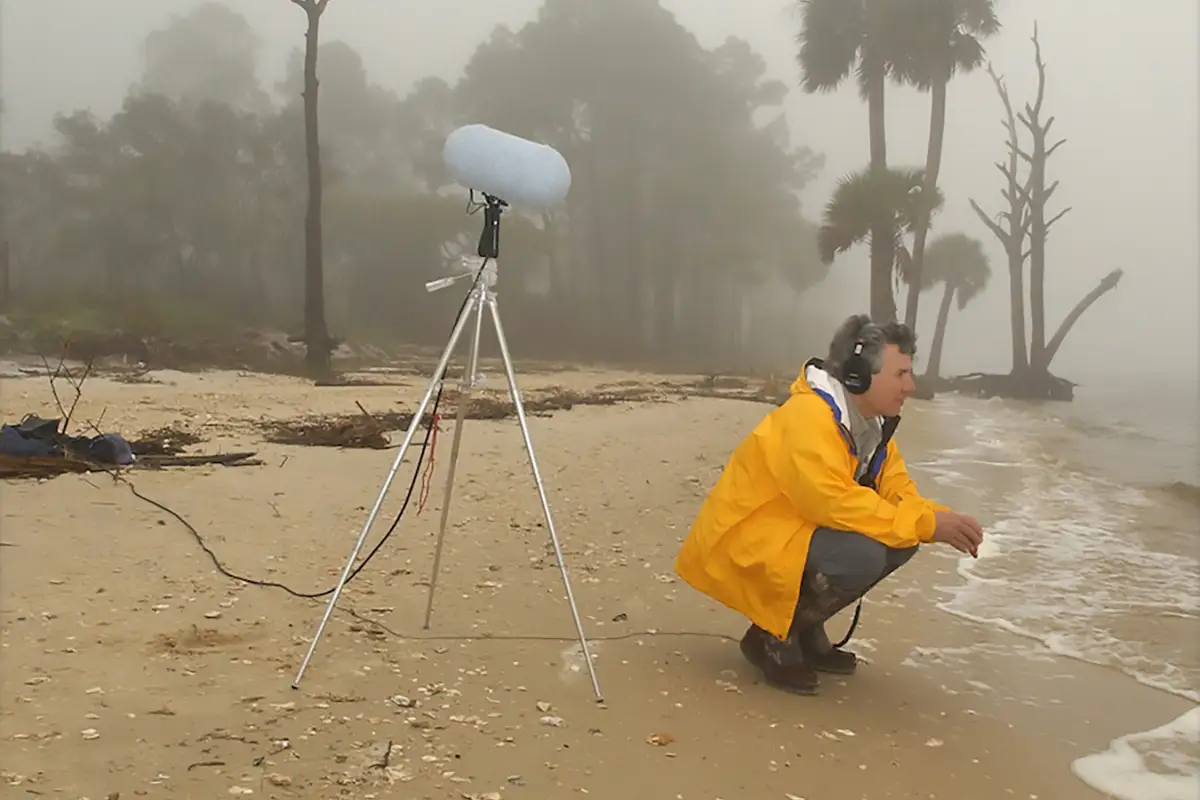Bysco developed a textile fiber that comes from mussel secretions. Its technical properties can allow the replacement of synthetic fibers like fiberglass and polyester
Recycling 80 percent of the French Byssus Production: Bysco turns it from waste to naturally sourced textile fiber
Three years ago, Robin Maquet, former skipper and now co-founder of French startup Bysco, set sail as part of his engineering studies and pondered a non-polluting solution to replace fiberglass or polyester fibers in boat hull construction. He discovered mussel byssus, a sea lichen with fibrous-like consistency generated by mussels when they attach themselves to rocks or boat hulls, for example, and let themselves sway by the waves.
Right after returning on the ground, Maquet wanted to know more about mussel byssus and found out about the potential of a lightweight and particularly strong resource that was not yet exploited. He embarked on a literature review to explore sustainable manufacturing of spider silk and then turned his attention to mussel byssus, heading to the Bay of Mont Saint-Michel.
It turned out that France alone has 5 000 tonnes of byssus available from the mussel farming and production, with neighboring European countries like the Netherlands, Spain, Portugal, and Italy likely having similar quantities, making it a significant resource.
In August 2021, Robin Maquet and his partner Florence Baron founded Bysco, based in Nantes, with the goal to accelerate the ecological transition towards materials, in this case a naturally sourced textile fiber, without any impact on the environment. The idea is, within the next decade, to recycle 80 percent of the French byssus production.
Marine waste management and sustainable manufacturing – Bysco collaborations
The law concerning the fight against waste and the circular economy (2020) provides for the implementation of an extended producer responsibility approach, encouraging users to manage their waste responsibly. However, for many marine professionals, waste management is a real challenge. For instance, shells, composed of calcium carbonate, are neither incinerable, nor suitable for anaerobic digestion, nor compostable. Lacking a sustainable solution, they are often disposed of in the sea or on beaches, or else cataloged as waste without being repurposed or recycled, choking marine ecosystems.
Bysco collaborates with mussel farming partners who provide the company with the byssus, creating a mutually beneficial arrangement that eliminates the need for producers to dispose of them, which incurs costs.
The sustainable manufacturing process at Bysco factory in Cancale, Mont-Saint-Michel Bay
Bysco recovers the waste bins from mussel producers, which contain byssus, shells, mud, sand, and more. They have created a semi-industrial pilot line that enables the separation, washing, and drying of the fiber. One of the modules that make it up manufactured by Hubert process in Laval. This initial step transforms a waste product from the mussel industry into bundles of byssus intended for valorization.
The unit in Cancale, located at the western tip of the Mont-Saint-Michel bay, at the crossroads between Normandy, Brittany and the Pays de la Loire, three of the main mussel-growing regions in France, covers a radius of about thirty kilometers.
At the start of the project, they produced approximately 150 kg of byssus fiber per month. To put it in perspective, for every kilogram of mussels, it is possible to get three grams of byssus. In September 2023, Bysco operated the semi-industrial pilot line, and production now ranges from 300 to 500 kg per month.
Natural and synthetic fibers: Byssal filaments among the best naturally sourced textile fibers for construction and mobility markets
In nature, the mussel uses 40 percent of its metabolism to produce byssus filaments, a fiber divided into three parts: the byssogen gland, located inside the mussel, the byssus fibers, and the small sticky patch that aids in attachment.
Byssal threads naturally resemble fine flax. Compared to flax or hemp fiber, byssus fiber does not grow on land and therefore does not compete with human food production. Byssus does not consume water, and regardless of what happens with the material afterwards, it is a by-product of mussel farming. It is very lightweight and has better thermal insulation properties than other bio-sourced materials.
Within the synthetic textiles range, there are only a few materials that outperform byssus, but it ranks among the top. In terms of acoustic comfort, it is only slightly inferior to the top-performing material in this field, which is melamine foam.
Currently, there are two main markets for byssus fiber: the construction sector, where it is used to produce panels for acoustic comfort, for insulating boilers, for thermal insulation of roller shutters, and for certain equipment used for air conditioning and heating; and the mobility market, where it is used for thermal insulation in converted vans and campers, as well as for the sustainable manufacturing of TGV train floors or for the interior of airplanes.
Mussel byssus bio-based textile fibers prototypes by Bysco in partnership with French Institute of Textile and Apparel
Bysco products have achieved a 95 percent bio-based composition, with byssus as the predominant component.
An initial prototype of a textile structure using mussel byssus was created at the ENSAIT (École Nationale Supérieure des Arts et Industries Textiles) in Roubaix. Subsequent prototypes developed in partnership with IFTH (French Institute of Textile and Apparel). In certain cases, polymer fibers added to meet specific technical demands of customers.
Next year, their goal is to produce 5 to 6 tons of fibrous material, which is then processed on the technological platforms of IFTH and CETI (European Center for Innovative Textiles) in Roubaix and Tourcoing.
Main pivotal areas of interest are agriculture, energy and bio-based materials, with R&D programs already in action.
In terms of pricing, the sustainable manufacturing of byssus fiber is costlier than fiberglass but is competitive with premium flax fibers, which generally cost around 20€ per square meter.
Bysco is presently in the process of establishing a production line slated for operation: it enables the company to manufacture 50 tonnes of naturally sourced textile fiber this year, with rapid expansion plans aiming to reach 200 tonnes annually. With 5 000 tonnes of byssus available in France, the company’s objective is to produce a matching 5 000 tonnes of fiber.
Further exploration of other applications for this fiber includes the integration of byssus fiber into personal protective equipment.
The market of naturally sourced textile fiber is growing faster than bio-based resources. Byssus’s large volumes
According to the studies carried out by Maquet and Baron, the market is promising. Flax, hemp, and some mineral materials considered as bio-sourced often cannot meet the demand for production in larger scales, since the market of sustainable manufacturing is growing faster than the resource.
Since most fibers need their raw material to grow on soil, they require to meet certain standards due to the field selection, responsiveness to outside temperatures and weather conditions, soil fertilization and other factors dictated by human behavior.
In regards to the mussel production, between 25 000 and 30 000 tons are available in Europe alone. This means the primary resource for the byssus is abundant and does not compete with other resources taking away soil space, water and market demand.
The downside is that like any early-stage startup, Bysco needs to continue to invest in research and development programs to achieve economic viability.
Since cleaning the byssus fibers is a top priority, after transitioning from artisanal to a pre-industrial process, the company must industrialize this stage by automating washing machines to handle large volumes, be competitive in the market, and therefore achieve economies of scale.
Bysco
French start-up founded in 2021 and based in Nantes. Bysco specializes in bio-based organic materials and has developed a process to transform mussel filaments and organic material into a technical textile fiber.




















